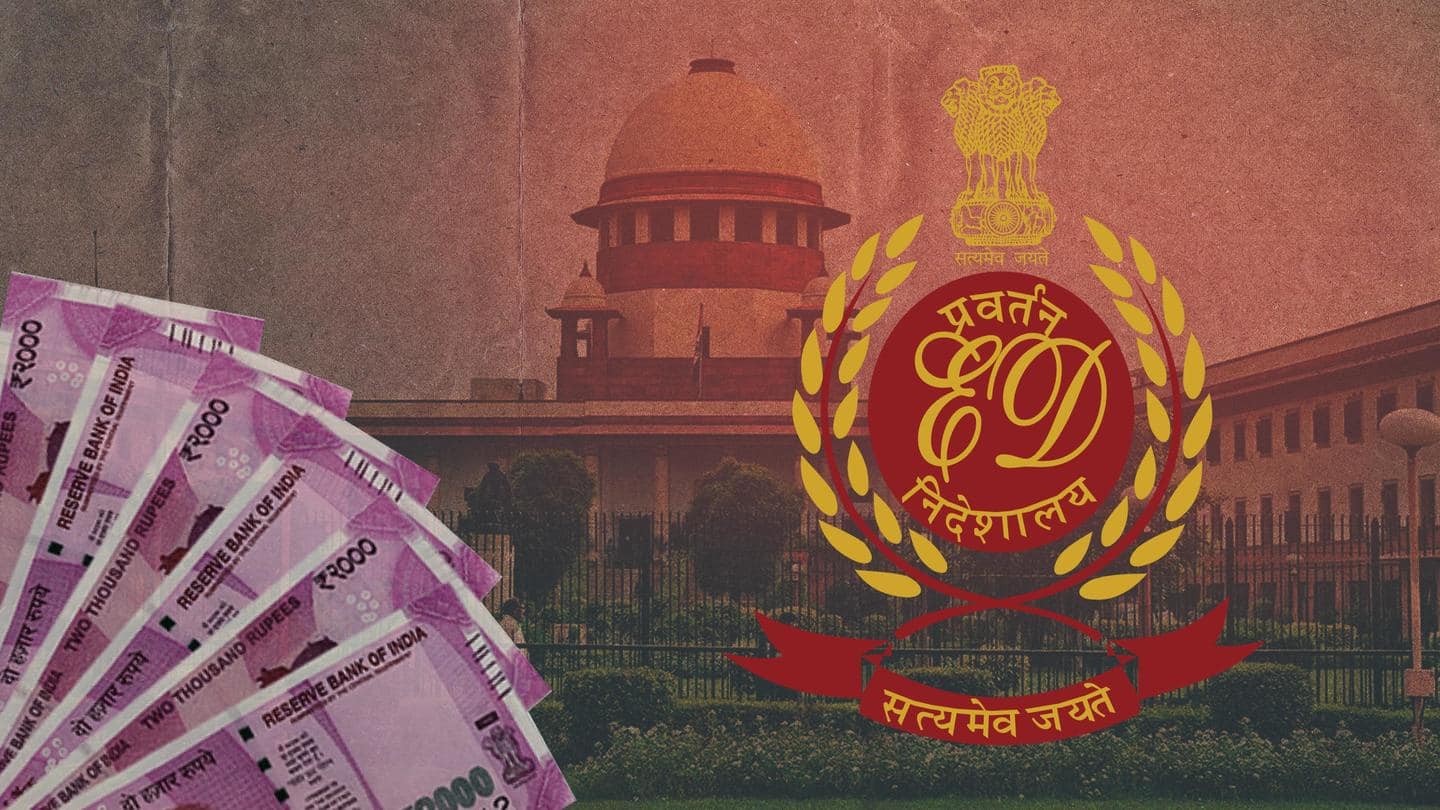
Supreme Court to review its 'Money Laundering Act' decision today
What's the story
The Supreme Court is scheduled to hear a review petition on Thursday that challenged its recent judgment on the Prevention of Money Laundering Act (PMLA) 2002.
The top court had upheld the powers of the Enforcement Directorate (ED) to investigate and arrest under the act.
Notably, the Supreme Court issued its decision on various petitions challenging the provisions of the PMLA on July 27.
Context
Why does this story matter?
The ED is the department of the Indian government responsible for enforcing economic laws and addressing financial crimes.
It is in charge of upholding two important laws, the Foreign Exchange Management Act (FEMA) and the PMLA.
However, the Centre has been facing criticism for the action on Opposition leaders which is viewed as the use of the law enforcement agency as a political tool.
Petition
Review petition had question inconsistency of SC judgement
The plea, filed by Congress MP Karti Chidambaram, said that the ruling should be reviewed since it contains fundamental errors and is inconsistent with previous judgments and Constitutional principles.
According to Chidambaram, the ruling violates Articles 20 and 21 of the Constitution, as well as established principles of criminal law, and should be reconsidered by the court.
Supreme Court
What did the court observed?
According to reports, the court, led by Justice AM Khanwilkar, had affirmed the ED's arrest, attachment, and search and seizure powers under the PMLA, while also affirming the "twin conditions" for bail.
The court further stated that ED personnel are not "police officers under CrPC," and that "statements before ED officials are admissible as evidence."
Furthermore, the bench stated that the ED's powers are "not arbitrary."
PMLA
PMLA's stringent regulations were upheld
As per SC, ED officials don't need to disclose grounds of arrest when detaining an accused.
The officials also don't need to prove ECIR (copy of the complaint) to the accused, as it is "not an FIR".
The court upheld the twin bail conditions- courts must hear a public prosecutor against the plea and believe the accused is not guilty of an offense.
Petitions
What did the petitions say?
Nearly 200 petitions clubbed together argued against ED officials not being obligated to follow CrPC during investigations.
They stated that the procedure for starting an investigation, summoning witnesses and accused, and attaching assets violates the fundamental law of liberty.
Petitioners also reflected on the difficulty to attain bail under PMLA and argued that putting the burden of proof on the accused violates fundamental rights.
Politics
ED accused of acting as a tool to target Opposition
The probe agency has been chastised for regularly targeting opposition figures in purported money-laundering investigations.
Recent instances include ED's action on West Bengal minister Partha Chatterjee, J&K politician Farooq Abdullah, and its continued interrogation of Rahul Gandhi and Sonia Gandhi.
The ED has already targeted Delhi minister Satyendar Jain and former Finance Minister P Chidambaram.